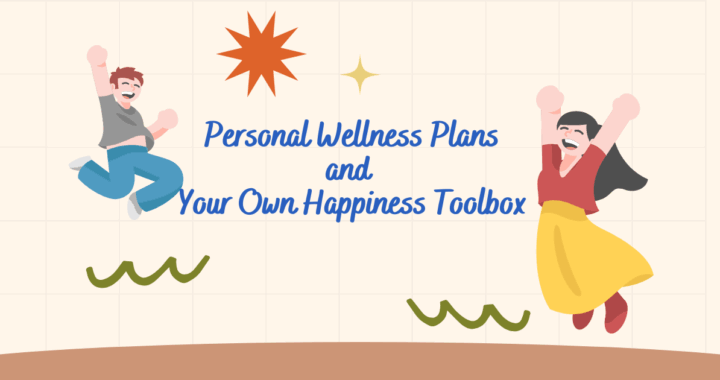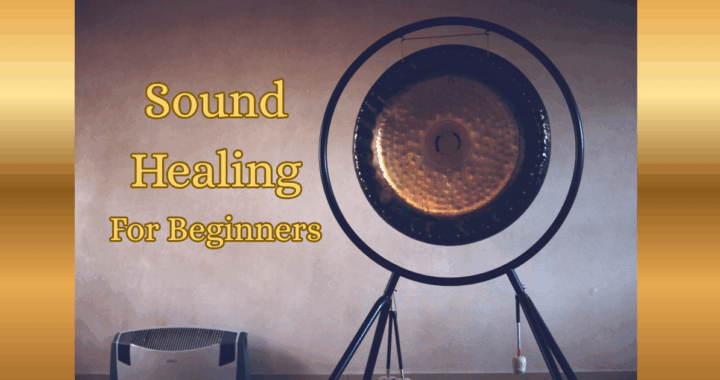Stress is a natural response to challenging situations and we have been living with stress since we first learned to walk! Our bodies need a certain level of stress to protect us in challenging situations. They react to stress by releasing hormones such as adrenaline and cortisol, which prepare us to face a threat. This is often termed the “fight, flight or freeze” response and is crucial for survival to get us out of those sticky situations. However, if our stress levels are too high for too long, then this response can have a detrimental effect and can become harmful when prolonged. So, read on to find out the benefits of reducing stress, and some practical ways anyone can do.

The Fight, Flight, or Freeze Response
The stress response is controlled by our sympathetic nervous system and involves several physiological changes which include:
- Activation of the Hypothalamus: When a threat is perceived, the hypothalamus in the brain activates the adrenal glands.
- Release of Stress Hormones: The adrenal glands release stress hormones, mainly adrenaline (epinephrine) and cortisol.
- Increased Heart Rate and Blood Pressure: Adrenaline causes the heart to beat faster and blood pressure to rise, preparing the body to respond.
- Rapid Breathing: The breathing rate increases to supply more oxygen to the muscles.
- Energy Boost: Glucose (sugar) is released into the bloodstream for a quick burst of energy.
- Increased Blood Flow to Muscles: Blood flow is redirected from non-essential functions (like digestion) to the muscles.
- Enhanced Alertness: The senses become sharper, and the body becomes more alert to the surroundings.
Medical Impact of Prolonged Stress
While this response is essential for survival, prolonged activation can have harmful effects on the body, including:
- Cardiovascular Problems: Hypertension, heart attacks, and strokes.
- Immune Suppression: Increased susceptibility to infections and diseases.
- Digestive Issues: Acid reflux, irritable bowel syndrome (IBS), and ulcers.
- Mental Health Issues: Anxiety, depression, and chronic stress disorders.
Understanding this response can help you develop strategies to manage stress effectively and improve your overall health.

Benefits of Reducing Stress… to the Body
Your body will thank you when you start to recognise and destress yourself. It will start to regain its own balance. Many people nowadays understand the links between stress, lifestyle and health and the benefits of reducing stress are acknowledged by many physicians. When you start practices that reduce your stress you can expect your body to thank you by:
- Improved Heart Health: Reducing stress lowers blood pressure and heart rate, decreasing the risk of cardiovascular diseases.
- Enhanced Immune Function: With less stress, your immune system becomes more effective at fighting off infections and illnesses.
- Better Digestion: Stress reduction can alleviate digestive issues like acid reflux, IBS, and ulcers.
- Reduced Pain: Chronic pain conditions, such as tension headaches and migraines, often improve with lower stress levels.
… and there are also many benefits of reducing stress to the mind:
- Decreased Anxiety and Depression: Lowering stress can significantly reduce symptoms of anxiety and depression.
- Improved Cognitive Function: Reducing stress enhances memory, concentration, and decision-making abilities.
- Better Emotional Regulation: With less stress, you can manage your emotions more effectively, leading to improved mood and relationships.
… and to your soul:
- Increased Self-Awareness: Stress reduction practices like meditation, yoga and mindfulness can lead to greater self-awareness and a deeper understanding of one’s thoughts and emotions.
- Enhanced Spiritual Well-being: Many stress reduction techniques, such as yoga and meditation, have spiritual components that can promote a sense of inner peace and connectedness. You can read more about these spiritual practices through many articles on this site.
- Greater Fulfillment: By reducing stress, you can focus more on your passions and interests, leading to a more fulfilling and meaningful life.

Strategies for Reducing Stress
Reducing stress involves adopting healthy habits and coping mechanisms. Here are some effective strategies that you can use to destress your life:
- Exercise: Regular physical activity releases endorphins, which are natural mood elevators. Exercise also reduces levels of the body’s stress hormones, such as adrenaline and cortisol.
- Mindfulness and Meditation: Practicing mindfulness and meditation helps calm the mind, reducing anxiety and promoting a sense of well-being.
- Healthy Diet: A balanced diet rich in fruits, vegetables, lean proteins, and whole grains supports overall health and can improve mood and energy levels.
- Sleep: Quality sleep is essential for stress management. Aim for 7-9 hours of uninterrupted sleep each night to help the body recover and rejuvenate.
- Social Support: Maintaining strong relationships with friends and family provides emotional support and reduces feelings of isolation.
- Time Management: Prioritising tasks and managing time effectively can reduce the feeling of being overwhelmed.
- Hobbies and Leisure Activities: Engaging in activities you enjoy can provide a much-needed break and help you relax. Try something new, something creative or perhaps even some volunteering.

Conclusion
Hopefully, you will now understand the importance and benefits of reducing stress. It is crucial for maintaining your overall health and well-being. By adopting healthy habits and coping strategies, we can all learn to mitigate the harmful effects of stress on our bodies, minds, and souls. The journey to a stress-free life requires commitment and practice, but the rewards are well worth the effort.
For more information on stress from the NHS, see here.





This is a wonderful post on the benefits of reducing stress and how it can heal the body, mind, and soul! I love how you’ve emphasized the holistic approach to stress relief, recognizing that stress affects us physically, mentally, and emotionally. From my experience, finding ways to manage stress—whether through mindfulness, exercise, or relaxation techniques—has a profound impact on overall health and well-being. Your advice on taking time to slow down and listen to our bodies is so important in today’s fast-paced world.
One question I have is: How do you recommend managing stress in the long term, especially when dealing with ongoing life challenges or work-related pressures? It can be hard to maintain healthy stress management habits consistently, so any tips on staying committed to stress-relieving practices would be helpful. Additionally, how do you incorporate relaxation techniques into daily routines to prevent stress from building up in the first place?
Overall, this post is a great reminder of the importance of stress reduction for overall health. The strategies you’ve shared will undoubtedly help anyone looking to find more balance and peace in their lives. Thanks for sharing these valuable insights!
Dear Mr Cool,
Many thanks for your kind words on my article and I’m so glad you found it helping in learning to reduce stress. To answer your questions, I find that if you do a few small things on a daily basis, then you can help manage stress in the long term because you never really let it get out of hand. There’s a great analogy about the stress bucket that I love. Basically, things in your day like work, other people, traffic etc., fill up your stress bucket and it is your job to empty it at regular intervals so it doesn’t overflow. This can be by any of the simple techniques I’ve listed – even a 10 minute walk can calm a racing mind. Spend the time to think about what helps you personally and implement those as regular strategies to empty your bucket!
Another tip I have is to switch off from the noise of the world for a while. Turn off the TV and your phone. You don’t need to be available 24/7 to anyone, so just take a little control back of when you will interact with things that can cause you stress. It’s a very simple but empowering stance to take. All the best. Gail
This article highlights such an essential topic—stress and its impact on our overall well-being. I found the breakdown of the “fight, flight, or freeze” response fascinating, especially how our bodies react so instinctively to stressors. It’s a reminder of how incredible yet fragile our systems are when overwhelmed.
One question I had while reading was about the role of exercise—are there specific types or intensities of workouts that are more effective for stress reduction? Personally, I’ve found that yoga and walking outdoors help me calm my mind, but I wonder if something like high-intensity interval training would have a similar benefit.
I really appreciate the section on the benefits of reducing stress for the soul. Practices like meditation and mindfulness have been game-changers for me in managing stress. It’s amazing how these methods not only improve mental clarity but also nurture a sense of inner peace and fulfillment.
Overall, this is a comprehensive guide, and I’m looking forward to implementing some of these strategies to further improve my stress management. Great job on covering this topic so thoroughly!
Hello Herman. Thank you so much for your thoughtful comment! I’m really glad you found the article insightful and that the breakdown of the “fight, flight, or freeze” response resonated with you. It truly is fascinating how our bodies are designed to protect us, yet, as you said, they can become overwhelmed when stress becomes chronic.
You’ve raised a great question about exercise and its impact on stress reduction. Both gentle exercises like yoga and walking outdoors are fantastic for calming the nervous system and promoting mindfulness, which is why they’re often recommended for stress relief. Activities that engage the parasympathetic nervous system, such as these, can help to lower cortisol levels and encourage relaxation.
On the other hand, high-intensity interval training (HIIT) can also be beneficial, but in a different way. While intense exercise does temporarily raise stress hormones like cortisol, it can ultimately help your body become more resilient to stress over time by improving cardiovascular health, releasing endorphins, and boosting overall mood. The key is finding the right balance—if you’re already feeling overwhelmed, gentler forms of movement may be more supportive, whereas HIIT could be helpful during times when you have more energy to expend. I hope you found this helpful and feel free to come back for more advice. Gail
This article on the benefits of reducing stress is a powerful reminder of how interconnected our physical, mental, and emotional health truly is. It beautifully emphasizes how managing stress effectively can lead to profound healing for the body, mind, and soul. The holistic approach highlighted in the article—incorporating mindfulness, proper nutrition, and exercise—offers a well-rounded perspective that anyone can adopt into their daily routine. It’s inspiring to see stress reduction framed as more than just a mental health practice but as a transformative way to improve overall well-being and quality of life.
I particularly appreciate the focus on simple, actionable strategies to reduce stress, which makes the message accessible to readers of all lifestyles. The connection between stress relief and long-term health benefits, such as improved immunity and emotional resilience, is especially compelling. This article serves as a gentle yet powerful reminder that taking time to care for ourselves isn’t a luxury—it’s a necessity. It’s a fantastic resource for anyone seeking to create a more balanced and fulfilling life, and I’ll be revisiting it often for motivation!
Hi Laura
Thanks for your kind and insightful comments on the article about the benefits of reducing stress. I’m glad you liked the holistic approach as that it what I try to teach and practice in all things. There is no separating the different aspects of our lives as they are all interconnected and affect each other. Too much stress can lead to so many problems as I can attest in my own life. I have followed my own plans however, and now I am a much happier person overall, I have more time for my family and I’m enjoying life so much more. Of course there are challenges, that’s what life’s about, but I can manage my stress and and healthier for it.
One more thing to say is that people should ask for help from professionals if they need it. That’s crucial too. All the best. Gail